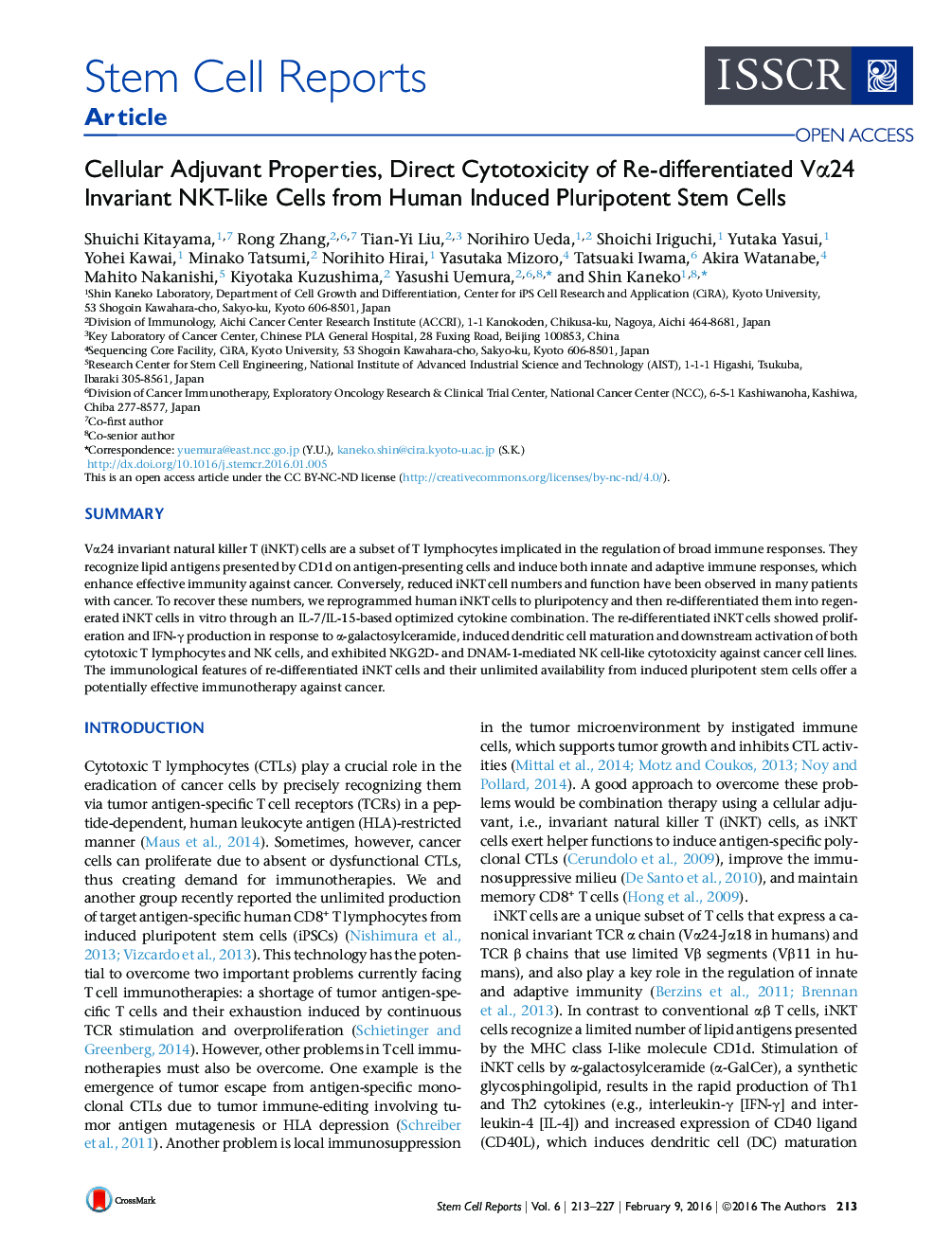| Article ID | Journal | Published Year | Pages | File Type |
|---|---|---|---|---|
| 2093277 | Stem Cell Reports | 2016 | 15 Pages |
•Human iNKT cell-derived iPSCs have differentiated into Vα24 iNKT-like cells in vitro•Re-differentiated iNKT-like (Re-iNKT) cells have functionally recovered properties•Re-iNKT cells function as an adjuvant to activate antigen-specific CTLs and NK cells•Re-iNKT cells exert cytotoxic activity via NKG2D- and DNAM-1-dependent mechanism
SummaryVα24 invariant natural killer T (iNKT) cells are a subset of T lymphocytes implicated in the regulation of broad immune responses. They recognize lipid antigens presented by CD1d on antigen-presenting cells and induce both innate and adaptive immune responses, which enhance effective immunity against cancer. Conversely, reduced iNKT cell numbers and function have been observed in many patients with cancer. To recover these numbers, we reprogrammed human iNKT cells to pluripotency and then re-differentiated them into regenerated iNKT cells in vitro through an IL-7/IL-15-based optimized cytokine combination. The re-differentiated iNKT cells showed proliferation and IFN-γ production in response to α-galactosylceramide, induced dendritic cell maturation and downstream activation of both cytotoxic T lymphocytes and NK cells, and exhibited NKG2D- and DNAM-1-mediated NK cell-like cytotoxicity against cancer cell lines. The immunological features of re-differentiated iNKT cells and their unlimited availability from induced pluripotent stem cells offer a potentially effective immunotherapy against cancer.
Graphical AbstractFigure optionsDownload full-size imageDownload as PowerPoint slide
